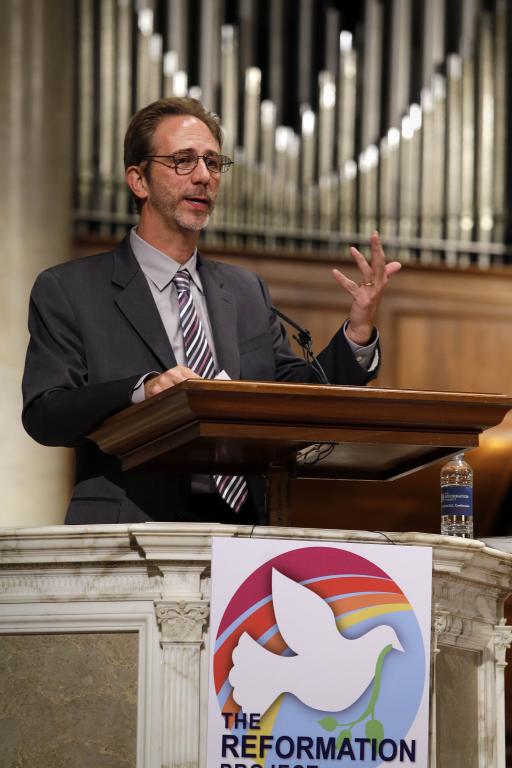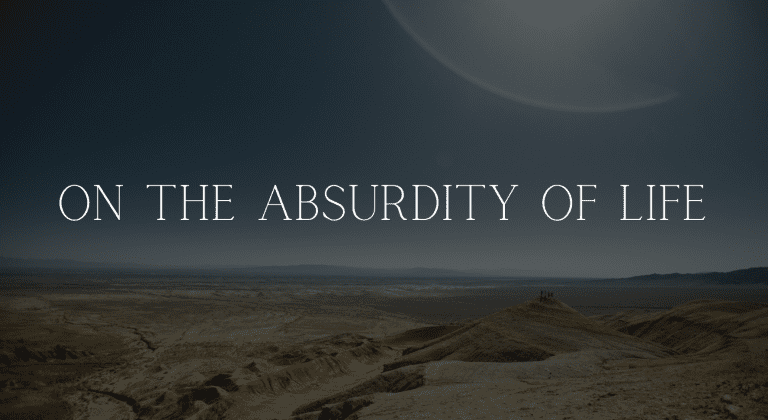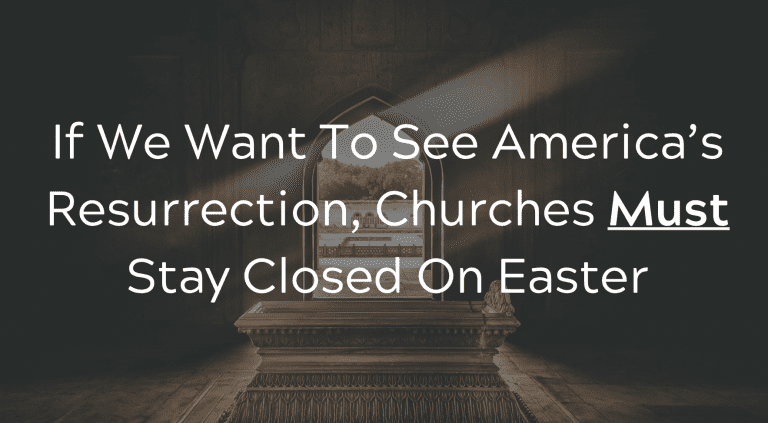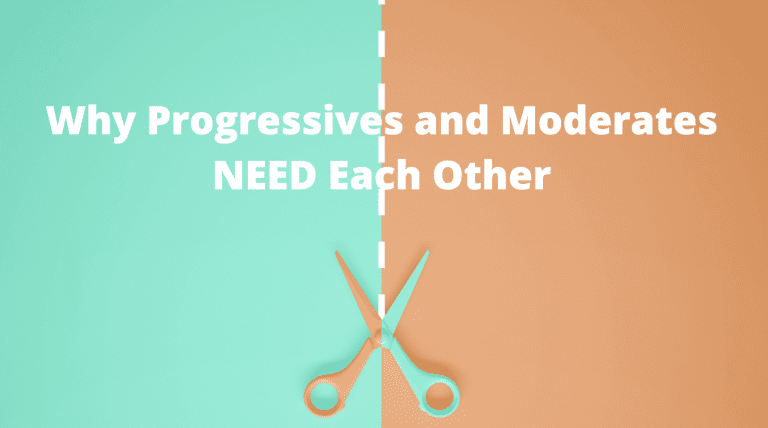I believe that salvation is based on the work of Christ on the cross alone, and not on any works we can do or any  theology we espouse. This is a key part of the Biblical Gospel. Anyone who confesses that “Jesus is Lord” and turns to walk in the way of His Kingdom is adopted in to the family of God now and for eternity. This is the power of God’s grace. That even after we submit our lives to the Lordship of Jesus Christ, we will still find ourselves wrestling with sin. That even after we are filled with the Holy Spirit of God, we will still find ourselves disagreeing about theology, doctrine, and practice. In the midst of all of our moral failures and wrong theology, God’s grace covers us. Binds us together. And demands that we, as undeserving recipients of grace, would extend the same unconditional binding grace to each other. We’re called to remain in community with one another, love one another, worship with one another, and study the Scriptures with one another, even when we disagree with one another.
theology we espouse. This is a key part of the Biblical Gospel. Anyone who confesses that “Jesus is Lord” and turns to walk in the way of His Kingdom is adopted in to the family of God now and for eternity. This is the power of God’s grace. That even after we submit our lives to the Lordship of Jesus Christ, we will still find ourselves wrestling with sin. That even after we are filled with the Holy Spirit of God, we will still find ourselves disagreeing about theology, doctrine, and practice. In the midst of all of our moral failures and wrong theology, God’s grace covers us. Binds us together. And demands that we, as undeserving recipients of grace, would extend the same unconditional binding grace to each other. We’re called to remain in community with one another, love one another, worship with one another, and study the Scriptures with one another, even when we disagree with one another.
Some believe in speaking in tongues. Others do not. Someone is obviously wrong, but most Christians on both sides of that debate would extend grace to the other, agreeing that God is not going to judge them because of their belief, whether right or wrong. Some believe in predestination, some don’t. But most of the time, people with two very different views on soteriology would remain in community with each other and still support each other as brothers and sisters in Christ.
It is perplexing to me how many people would confess and agree with every word I just wrote, but then, on the issue of homosexuality, throw all of that out of the window. Somehow, we’ve believed that on this issue, there is no room for grace or disagreement. Somehow, we’ve elevated this issue to a one that has eternal ramifications if we’re wrong. Because I believe that monogamous, same-sex relationships are glorifying to God and are not sinful, I am declared to be, by many Evangelical brothers and sisters, a heretic, false teacher, and ultimately un-saved.
Earlier this week, Eric Teetsel and Owen Strachan, two fellow bloggers here on Patheos Evangelical, openly criticized the upcoming Q Conference for hosting “false teachers” Matthew Vines and David Gushee, both who identify as Bible-Believing Christians and yet support same-sex relationships. They wrote: “On the topic of human sexuality, Gushee and Vines have, tragically, offered the church false teaching. By granting them a platform to propagate their lies under the imprimatur of a Christian conference claiming the mantle of Colson the Q conference enables them to undermine the integrity of scripture and, ultimately, harms those souls Christians are called to serve. Whether on race, sex, orientation, or any other matter, false teaching deserves no such platform.”
I understand their position. The problem is that most of us believe wrongly about God in one way or another. Most of us teach people to believe wrongly about God in one way or another. Most of us have wrong beliefs that directly affect the way that we live, causing us to live “wrongly”. Again, the Church has been divided on a plethora of issues throughout history. We disagree on everything from birth control, to head coverings, to women in ministry, to marriage and divorce. Someone is right and someone is wrong. Whoever is wrong is living in persistent sin and direct disobedience to God’s Word. But how many of us are prepared to see that the remarried man in our congregation is not a true Christian? How many of us are willing to say that churches with women pastors are false churches? How many of us are willing to say that those who use birth control are going to go to hell?
In the New Testament, there is some very strong language directed at those who are identified as “false teachers”. As Strachan and Teetsel point out, John writes:
For many deceivers have gone out into the world, those who do not confess the coming of Jesus Christ in the flesh. Such a one is the deceiver and the antichrist. Watch yourselves, so that you may not lose what we have worked for, but may win a full reward. Everyone who goes on ahead and does not abide in the teaching of Christ, does not have God. Whoever abides in the teaching has both the Father and the Son. If anyone comes to you and does not bring this teaching, do not receive him into your house or give him any greeting, for whoever greets him takes part in his wicked works. (2 John 4:7-11 ESV)
But notice that John clearly defines what this false teaching was. It was the denial that Christ “came in the flesh”. In other words, they were fundamentally denying the validity of Jesus, his ministry, his death, and his resurrection, all of which are the core components of the Gospel of Jesus Christ. John was warning the Church against those who claimed to be Christians yet denied the very reality of Jesus himself. Of course these people are false teachers and are truly anti-Christ. These are Gospel issues. However, throughout the rest of Church History, faithful Christians have debated about a plethora of non-essential issues, everything from charismatic gifts, to Eucharistic theology, to eschatological views. Yet rarely have level headed, Gospel rooted believers ended up calling those who disagree with them “false teachers”, “heretics”, or “anti-Christ’s”. Because those issues are not core issues to the Gospel. They have nothing to do with a basic, saving confession of the Lordship of Christ. They are issues of hermeneutics and cultural context rather than with an individuals salvation. If Teetsel and Strachan are to take their perspective to it’s logical conclusion, they will need to say that anyone who disagrees with them on hundreds of other issues are “false teachers”, and by the end of the day, they will find themselves in a very small camp of “righteous” people who have got their theology all figured out.
But to believe that is to underestimate the power of the Grace of God conveyed to us through Jesus Christ. Yes, we’re all wrong on one point or another. In the word’s of C.S. Lewis, every word we speak about God and every prayer we pray “blaspheme” and are “arrows, aimed unskillfully…[at] a deaf idol if [God] takes them at their word.” Every word we speak falls short of the Truth. Every thought we have misses the mark of the Reality of who God is. God knows this, and loves us anyways. He covers us in the midst of our wrongness and points us back to the cross of Christ as our only hope for redemption and salvation. To believe that we must have correct theology in order to be saved fundamentally undermines the Gospel and spreads division and dissension among the body of Christ. For it causes us to remove our eyes from the cross as our only hope and asks us to rely on our ability to “believe rightly” and “live rightly” to be ultimately saved.
Donald Miller says it beautifully in a blog post he recently wrote:
Christian conversion is relational. It is not theological or intellectual any more than marriage is theological or intellectual.
In other words, a child could become a Christian if they had a mysterious encounter with Jesus, and a simple thinker could become a Christian if they had a mysterious encounter with Christ, and even a person who was a Muslim or a Buddhist could become a Christian if they had a mysterious relational encounter with Christ.
This is the only answer at which I could arrive that matched the reality in which we live, the complexity of scripture, and the mysterious invitation offered to us by Jesus.
I hear the masses saying, “But no! A person cannot believe in multiple Gods and be a Christian.” Let me counter with some questions:
Can a person have bad theology and be a Christian?
Has your theology ever been corrected, and were you really a Christian before?
Is your theology all worked out now so you have no more reason to study, and if not, are you a Christian?
If you believe a person’s theology has to be right to be qualified for Christian conversion, then you are saying a person comes to know God, in part, because he has right ideas, and I respectfully disagree.
Do I think right theology is important? Absolutely, but I do not believe it has any agency to convert anymore than directions to the doctor’s office has the power to heal.
The Church today is filled with millions of divergent opinions and beliefs about doctrine, theology, and practice. It always has, and until Jesus come back, always will. In the midst of all of our disagreement, it is the Spirit and Grace of God that binds us together in perfect unity. Unity doesn’t require uniformity, but it does require grace. And the position that Teetsel and Strachan, along with many other Christian leaders have been articulating when it comes to the growing variety of beliefs about homosexuality among Christians seems to be completely devoid of grace. They seem to fundamentally misconstrue the Gospel, taking the spotlight off of the work of Jesus and put it on our ability to articulate, believe, and live with theological correctness. And that, to me, seems to be a far better candidate for the label “false Gospel.”











